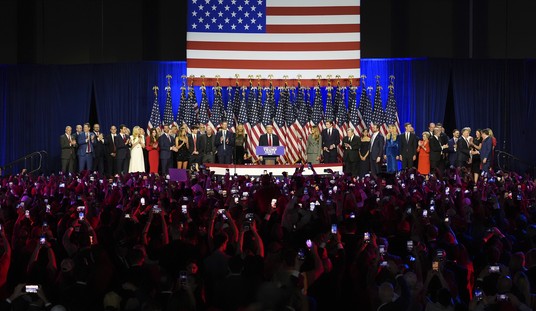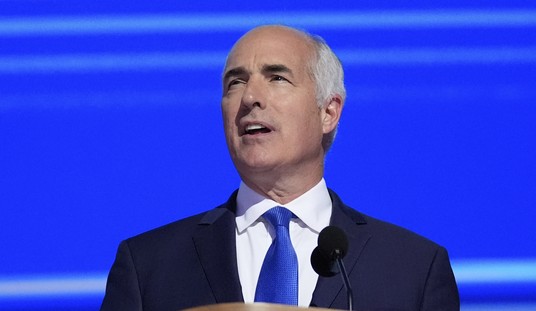Scotland has voted to stay in the UK. Although the referendum was attended by much apprehension and suspense elsewhere, most Americans were unconcerned, since they already knew from Worf and Captain Picard that the “British Tar” is still sung in the far future.
[jwplayer mediaid=”39315″]
Neil Irwin of the New York Times saw in the referendum a “crisis of the elites”. In this narrative the center is having difficulty holding because the constituent parts of nations can’t agree — principally about money.
It is a crisis of the elites. Scotland’s push for independence is driven by a conviction — one not ungrounded in reality — that the British ruling class has blundered through the last couple of decades. …
The rise of Catalan would-be secessionists in Spain, the rise of parties of the far right in European countries as diverse as Greece and Sweden, and the Tea Party in the United States are all rooted in a sense that, having been granted vast control over the levers of power, the political elite across the advanced world have made a mess of things.
The details of Scotland’s grievances are almost the diametrical opposite of those of, say, the Tea Party or Swedish right-wingers. They want more social welfare spending rather than less, and have a strongly pro-green, antinuclear environmental streak. (Scotland’s threatened secession is less the equivalent of Texas pulling out of the United States, in that sense, than of Massachusetts or Oregon doing the same.)
Some analysts did not see the issue as one of Scotland leaving the UK, but rather the consequence of London leaving the country of its origin. The equivalent of “flyover country” in the UK is apparently everywhere else but London. Mehul Srivastava wrote about the decline in the fortunes of the outlying parts of Britain in Bloomberg.
Sept. 18 (Bloomberg) — Back when London was the capital of a third of the planet, the young sailor in Joseph Conrad’s “Heart of Darkness” looked upon the serpentine Thames and conjured up what England sent forth into the world.
“The dreams of men, the seed of commonwealths, the germs of empires,” wrote Conrad in 1899.
It’s a different sort of empire now. As the vast realm crumbled around London — scattered by the “wind of change” that then-Prime Minister Harold Macmillan perceived in a 1960 speech in South Africa — the capital expanded its dominion of finance and left the rest of a dissatisfied nation behind….
“Since the end of empire, London has flourished while much of the rest of the United Kingdom has suffered serious decline,” said Alex von Tunzelmann, a historian and author of “Indian Summer,” which chronicled the last days of London’s grasp over the subcontinent. “There is a great deal of resentment about this, and not just in Scotland.”
As the tide of empire receded, all the gold that was left was in London town. Yet if there’s one reason Scotland decided to stay in, it was probably money. The EU did not seem to encourage the Scottish aspirations much, which must have suggested that Europe, in common with other institutions in this world, regarded connections less for their cultural worth than for the money they might bring. And Scotland would bring comparatively little to the coffers of the European bureaucracy.
And if one had to go to the Continent for household money well … just as a marriage might remain intact for reasons of convenience, the Scots, despite their grievances, probably decided they liked living with London better than Brussels.
Nations live longer than men, but they too change, passing through periods of estrangement and reconciliation. The bonds that bind human communities together must be constantly renewed and to our surprise, they often are.
[jwplayer mediaid=”39317″]
Recently purchased by readers:
MIU France Professional Non-stick Oven Liner, No more stuck-on mess in your oven; clean up is easy
Terra Mystica Board Game, a strategy game with a simple game principle and very little luck involved
Survivor Outdoor Fixed Blade Knife with Fire Starter
Crowns in the Gutter a strategic analysis of World War 1
Dickies Men’s Perry Suspender, don’t tear or stretch pants
Sleepy Hollow Season 1, a British spy working with George Washington against a Headless Horseman
Recommended:
Fire HD Kids Edition Tablet, “if they break it we’ll replace it no questions asked”
EVGA GeForce 8400, GS 1 GB DDR3 PCI Express 2.0 DVI/HDMI/VGA Graphics Card
Blue Microphones Mikey Digital Lightning Recording Microphone studio quality in a mobile environment
Chauvet Hurricane 700 Fog Machine, for that truly spooky Halloween
Buddybar Door Jammer, door security device, no plastic, steel all the way
Did you know that you can purchase some of these books and pamphlets by Richard Fernandez and share them with you friends? They will receive a link in their email and it will automatically give them access to a Kindle reader on their smartphone, computer or even as a web-readable document.
The War of the Words for $3.99, Understanding the crisis of the early 21st century in terms of information corruption in the financial, security and political spheres
Rebranding Christianity for $3.99, or why the truth shall make you free
The Three Conjectures at Amazon Kindle for $1.99, reflections on terrorism and the nuclear age
Storming the Castle at Amazon Kindle for $3.99, why government should get small
No Way In at Amazon Kindle $8.95, print $9.99. Fiction. A flight into peril, flashbacks to underground action.
Storm Over the South China Sea $0.99, how China is restarting history in the Pacific
Tip Jar or Subscribe or Unsubscribe to the Belmont Club










Join the conversation as a VIP Member